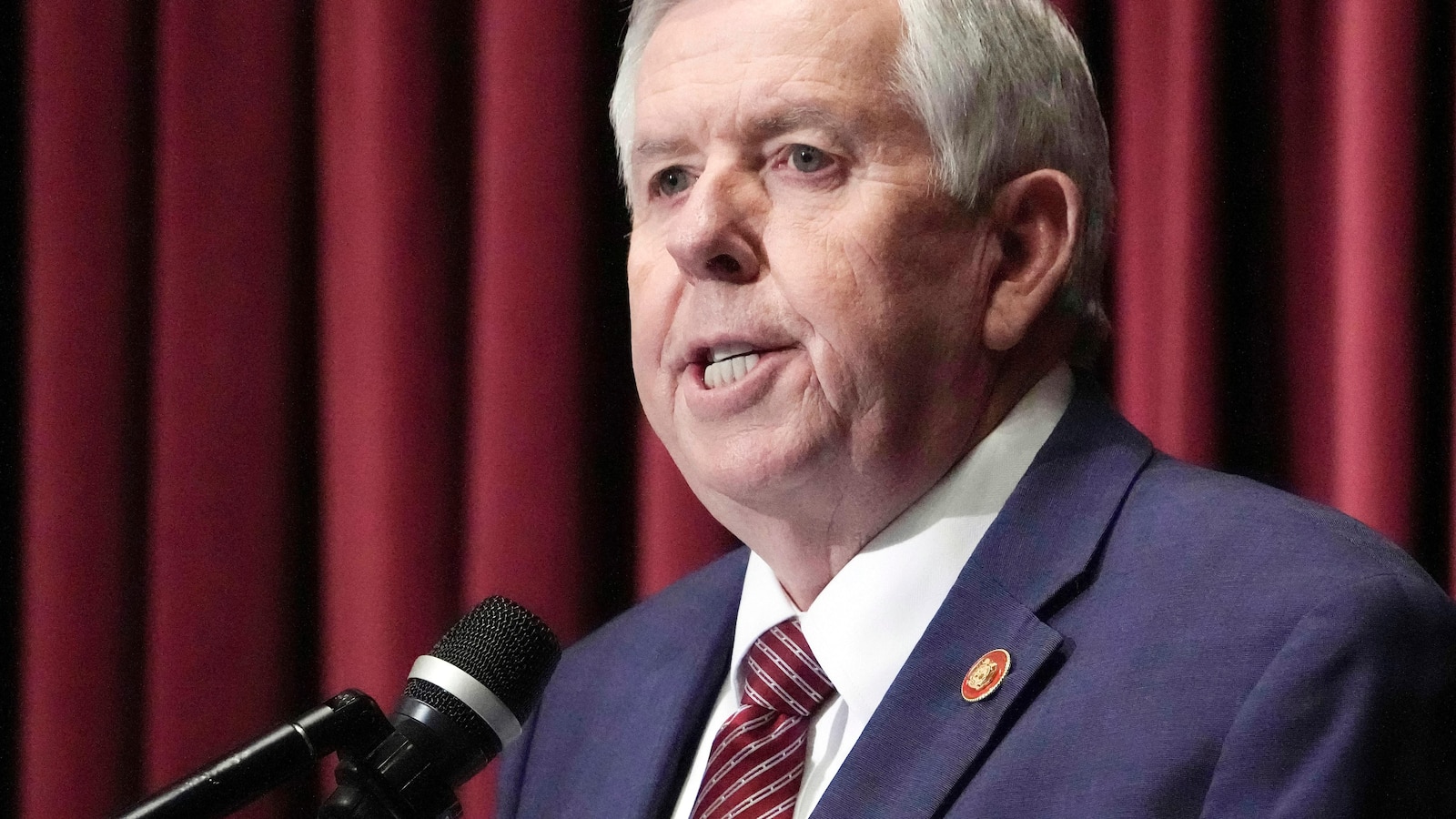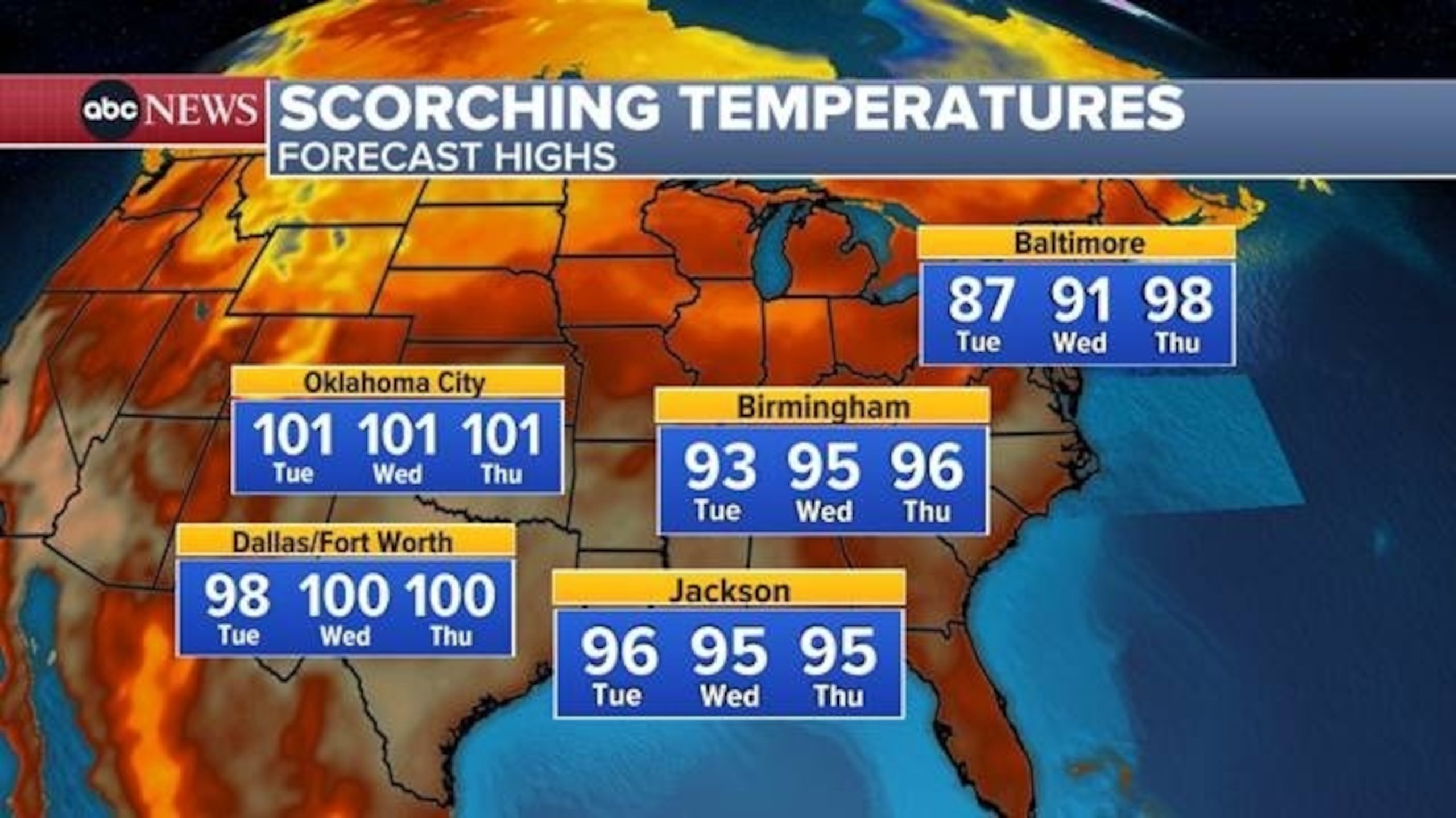
JEFFERSON CITY, Mo. — Missouri Gov. Mike Parson vetoed funding Friday for a school safety initiative that would have used video surveillance software to detect guns, becoming the second governor in as many months to balk at implementing the technology.
The Republican governor’s rejection of the proposed $2.5 million grant program for public schools was one of 173 line-item vetoes he announced while signing a roughly $50 billion state budget for the fiscal year that starts Monday. The veto of the gun-detection grants came after Kansas Gov. Laura Kelly, a Democrat, struck down a $5 million appropriation for a similar program.
The budget bills in both states were supported by ZeroEyes, a technology firm founded by military veterans after the fatal shooting at Marjory Stoneman Douglas High School in Florida. ZeroEyes uses surveillance cameras and artificial intelligence to spot people with guns and alert school administrators and law enforcement officers.
Though other companies also offer gun surveillance systems, the Kansas legislation included a lengthy list of specific criteria that ZeroEyes’ competitors don’t currently meet. The Missouri budget bill was less specific but still included several criteria met by ZeroEyes.
In a letter to lawmakers explaining his veto, Parson said “this appropriation appears to describe a specific vendor’s platform” and noted that the Department of Public Safety must follow state purchasing laws “rather than contracting with a particular vendor.” Parson also said he was vetoing the measure because of a general need to cut spending, among other things.
A spokesperson for ZeroEyes said no one was available for comment Friday.
Several other states, including Iowa, Michigan and Utah, already have enacted laws funding firearms detection technology in schools.
After numerous high-profile shootings, school security has become a multibillion-dollar industry. Various states also have provided funding to equip staff with mobile panic buttons and to digitally map school buildings to aid quicker responses by police, firefighters and emergency medical crews.
All told, Parson said, he made about $1 billion of line-item vetoes to the budget.
One veto was for a $497 million transfer for renovations to the Capitol, saying it wasn’t needed yet because detailed plans aren’t in place.
Another rejected $150 million out of a total $727 earmarked for the improvement and expansion of Interstate 44, which runs west from St. Louis to the Oklahoma border.
Parson also trimmed back $6 million set aside for future National Guard missions to the southern U.S. border. Missouri troops deployed to the border in Texas have since returned, Parson said. He left $2 million in the budget for potential future missions.
Also axed were numerous smaller items that Parson called “unnecessary pet projects.”
Missouri Governor Mike Parson recently vetoed a school safety initiative that aimed to fund gun-detection systems in schools across the state. The initiative, known as House Bill 575, would have allocated $50 million in state funding to help schools implement advanced technology to detect firearms on campus.
The decision to veto the bill has sparked controversy and debate among lawmakers, educators, and parents. Supporters of the initiative argue that investing in gun-detection systems is crucial for ensuring the safety of students and staff in schools, especially in light of the increasing number of school shootings in recent years.
Proponents of the bill believe that implementing these systems would provide an additional layer of security and help prevent tragic incidents from occurring. They argue that the cost of installing gun-detection technology is a small price to pay for the safety and well-being of students.
However, Governor Parson cited concerns about the effectiveness and feasibility of the proposed gun-detection systems as reasons for his veto. In a statement, he expressed doubts about whether the technology would truly enhance school safety and questioned whether the $50 million investment could be better utilized in other areas.
Opponents of the bill also raised concerns about the potential privacy implications of implementing gun-detection systems in schools. Some worry that these systems could infringe on students’ rights and create a surveillance state within educational institutions.
Despite the veto, supporters of the school safety initiative remain hopeful that the issue will be revisited in the future. They believe that investing in advanced technology to detect firearms is a necessary step towards creating a safer learning environment for students.
In the meantime, it is important for schools to continue exploring other strategies and resources for enhancing school safety, such as implementing active shooter drills, increasing mental health support services, and improving communication protocols with law enforcement.
Ultimately, the debate over funding gun-detection systems in schools highlights the complex and challenging nature of addressing school safety in today’s society. While there may be differing opinions on how best to protect students, it is clear that ensuring their safety should remain a top priority for all stakeholders involved in education.


